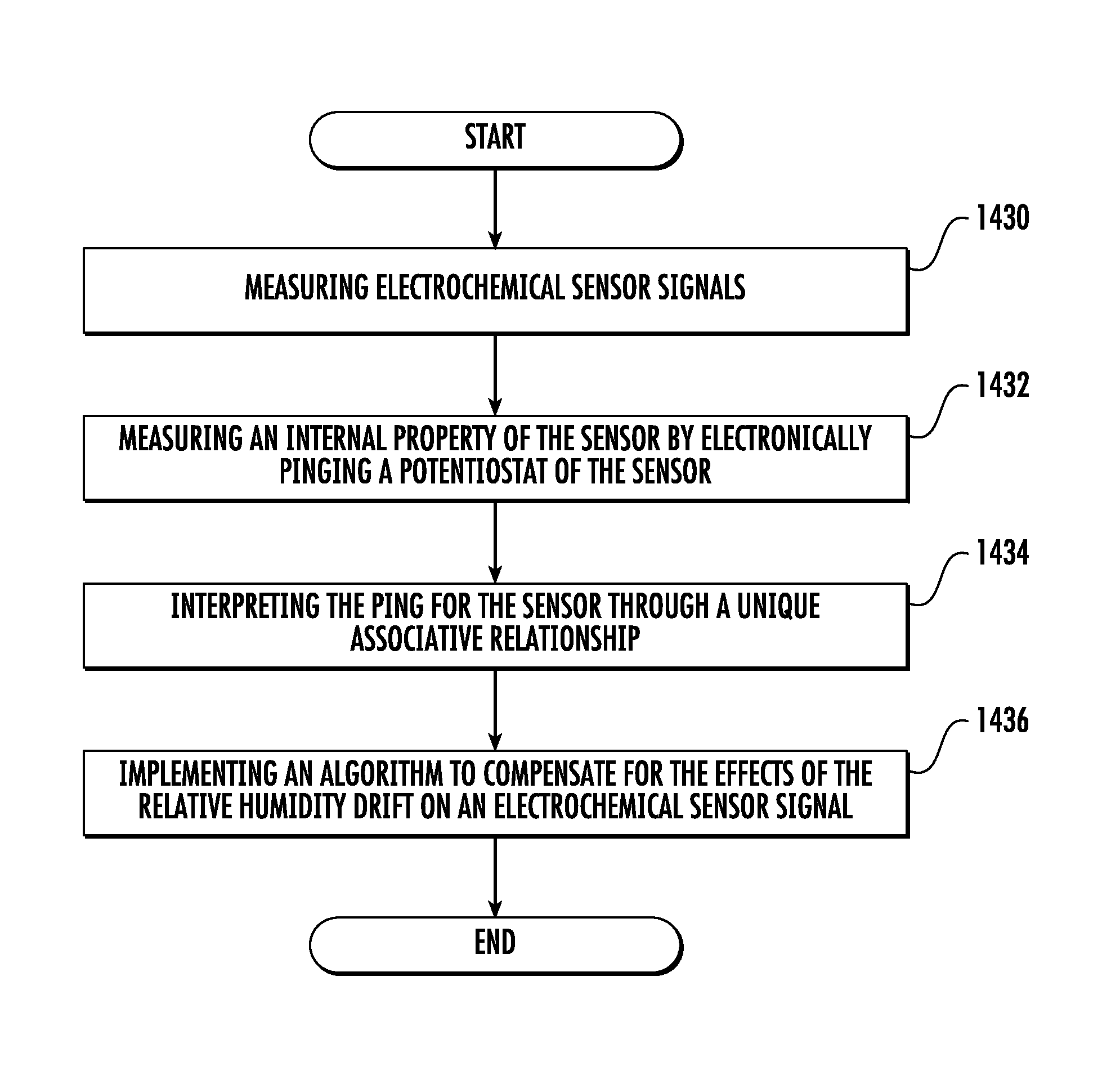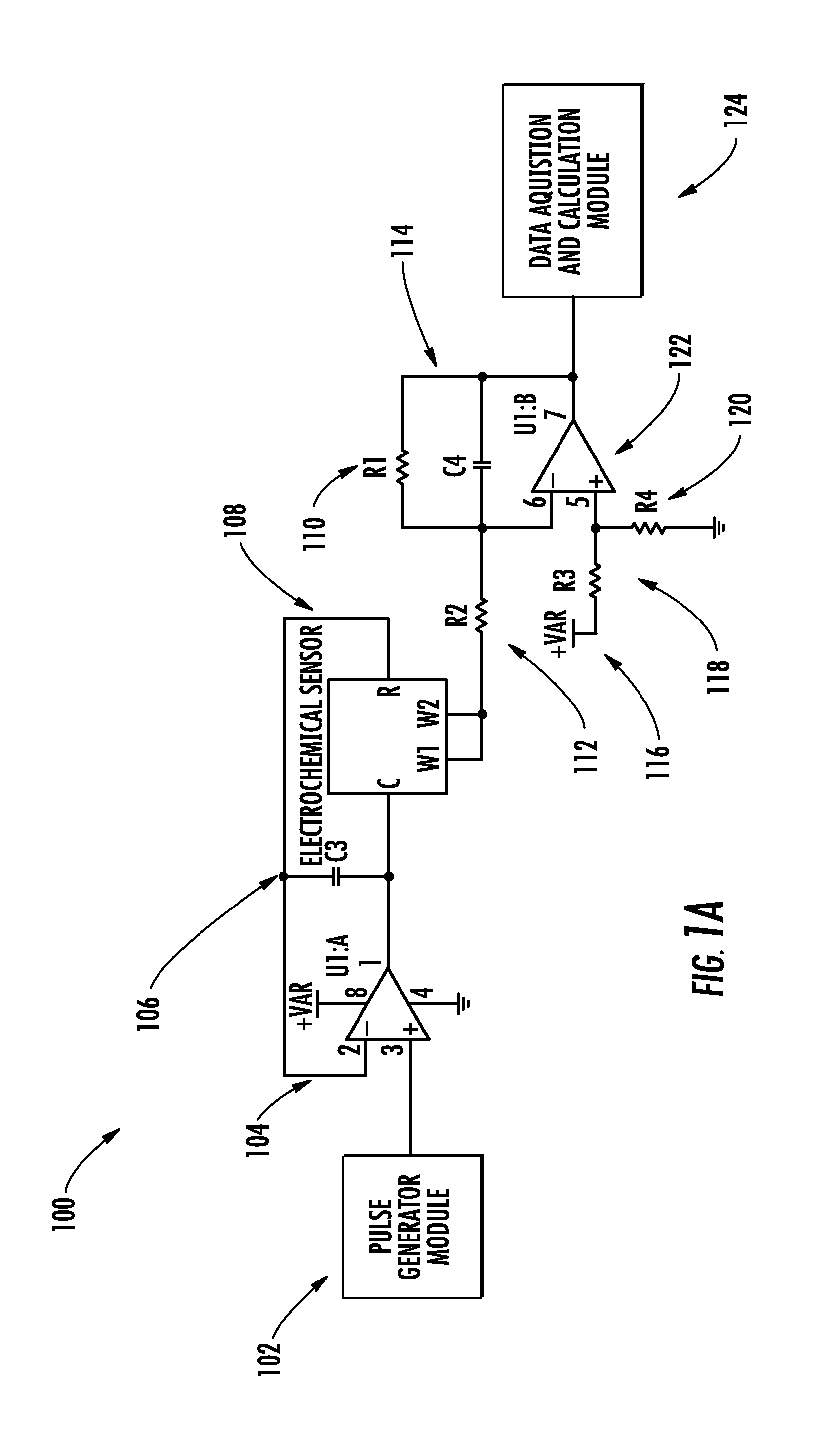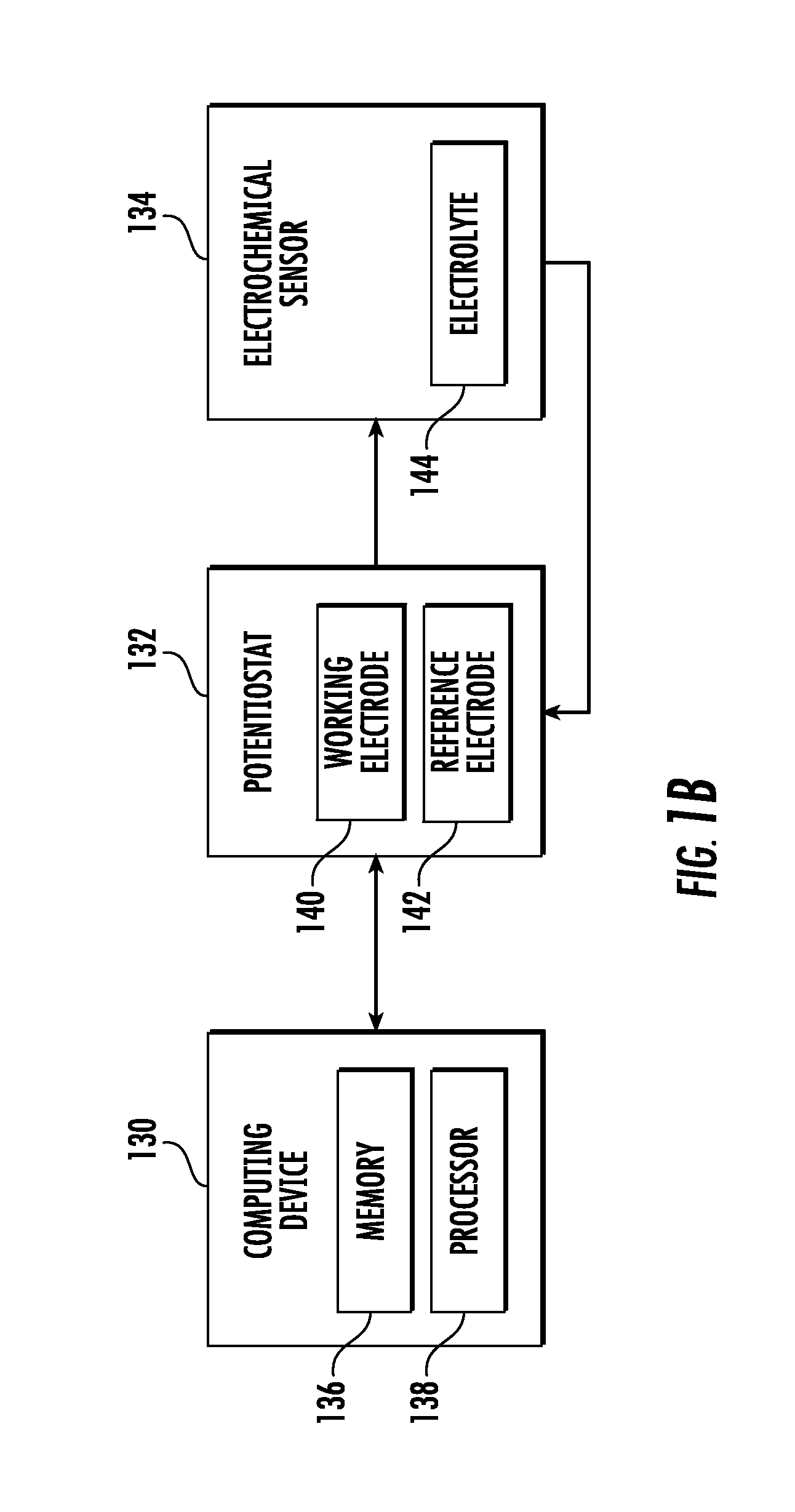Automated self-compensation apparatus and methods for providing electrochemical sensors
a self-compensation apparatus and self-compensation technology, applied in the direction of gas analyser calibration, material electrochemical variables, instruments, etc., can solve the problems of added expense, no way to correct for drift, bulky sensors,
- Summary
- Abstract
- Description
- Claims
- Application Information
AI Technical Summary
Benefits of technology
Problems solved by technology
Method used
Image
Examples
Embodiment Construction
[0024]Embodiments described herein are configured to provide a mechanism (such as an automated self-compensating apparatus) for compensation of drift parameters. The mechanism frees up design rules, allows lower cost and smaller sensors to be made and achieve high accuracy over long times even at low levels. Accordingly, embodiments may be configured to accomplish this two ways: using an environmental sensor, such as a relative humidity sensor, a pressure sensor, a thermometer, and / or other similar sensor in combination with the gas sensor and / or using a novel process based on measurement of the internal properties of the electrochemical sensor device, which have been uniquely isolated and identified as a property / measurement made in a certain way that can represent the effect of an environmental sensor on the gas sensors and thereby be used to compensate for the effects of environmental factors, such as relative humidity (e.g., the RH drift) in a given gas sensor. Additionally, emb...
PUM
 Login to View More
Login to View More Abstract
Description
Claims
Application Information
 Login to View More
Login to View More - R&D
- Intellectual Property
- Life Sciences
- Materials
- Tech Scout
- Unparalleled Data Quality
- Higher Quality Content
- 60% Fewer Hallucinations
Browse by: Latest US Patents, China's latest patents, Technical Efficacy Thesaurus, Application Domain, Technology Topic, Popular Technical Reports.
© 2025 PatSnap. All rights reserved.Legal|Privacy policy|Modern Slavery Act Transparency Statement|Sitemap|About US| Contact US: help@patsnap.com



